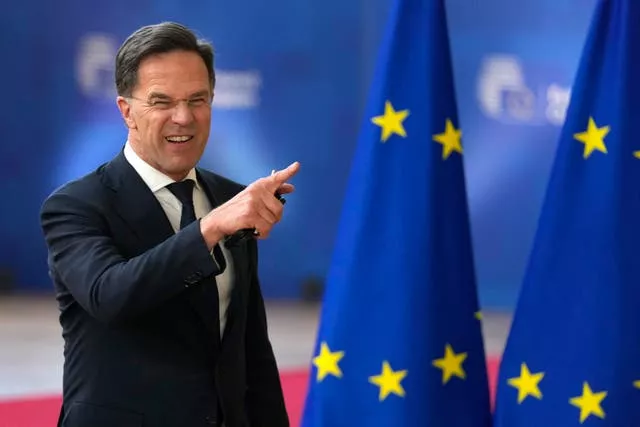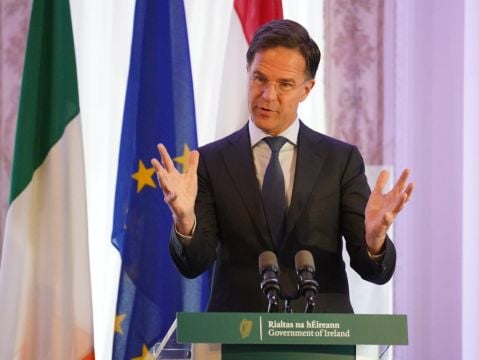Nato has appointed Dutch Prime Minister Mark Rutte as its next secretary general.
The outgoing leader of the Netherlands will take charge of the world’s biggest security organisation at a critical time for European security as war rages in Ukraine.
Mr Rutte’s appointment was sealed by Nato ambassadors during a meeting at the 32-nation alliance’s headquarters in Brussels.
I warmly welcome #NATO Allies' choice of @MinPres Mark Rutte as my successor. Mark is a true transatlanticist, a strong leader and a consensus-builder. I wish him every success as we continue to strengthen NATO.
I know I am leaving NATO in good hands.https://t.co/D0ass7fKiL— Jens Stoltenberg (@jensstoltenberg) June 26, 2024
Advertisement
US President Joe Biden and his counterparts will formally welcome him to their table at a summit in Washington from July 9-11.
The Dutch premier will take over from the current secretary general, Norway’s Jens Stoltenberg, on October 1.
Mr Stoltenberg spent more than a decade at the helm. His mandate was repeatedly extended, in part to provide continuity after Russia invaded Ukraine in 2022.
“I warmly welcome Nato allies’ choice of Mark Rutte as my successor,” Mr Stoltenberg said.
“Mark is a true trans-Atlanticist, a strong leader, and a consensus-builder. I wish him every success as we continue to strengthen Nato for the challenges of today and tomorrow. I know I am leaving Nato in good hands.”
Secretaries general chair meetings and guide often delicate consultations among member countries to ensure the organisation, which operates on consensus, can function smoothly.

The Nato leader also ensures decisions are put into action and speaks on behalf of all members.
Several obstacles had stood in Mr Rutte’s way of securing the post, even though he had the backing of the White House and most other big member countries including Germany. He emerged as the sole candidate after Romanian President Klaus Iohannis withdrew last week.
Hungary lifted its objections earlier this month, once Mr Rutte agreed that Budapest would not be obligated in the future to send personnel or provide funds for a new support plan for Ukraine. Nato’s unanimous decision-making gives any member a veto over projects and operations.
Turkey had also voiced opposition to Mr Rutte’s bid, but lifted its objections in April.







